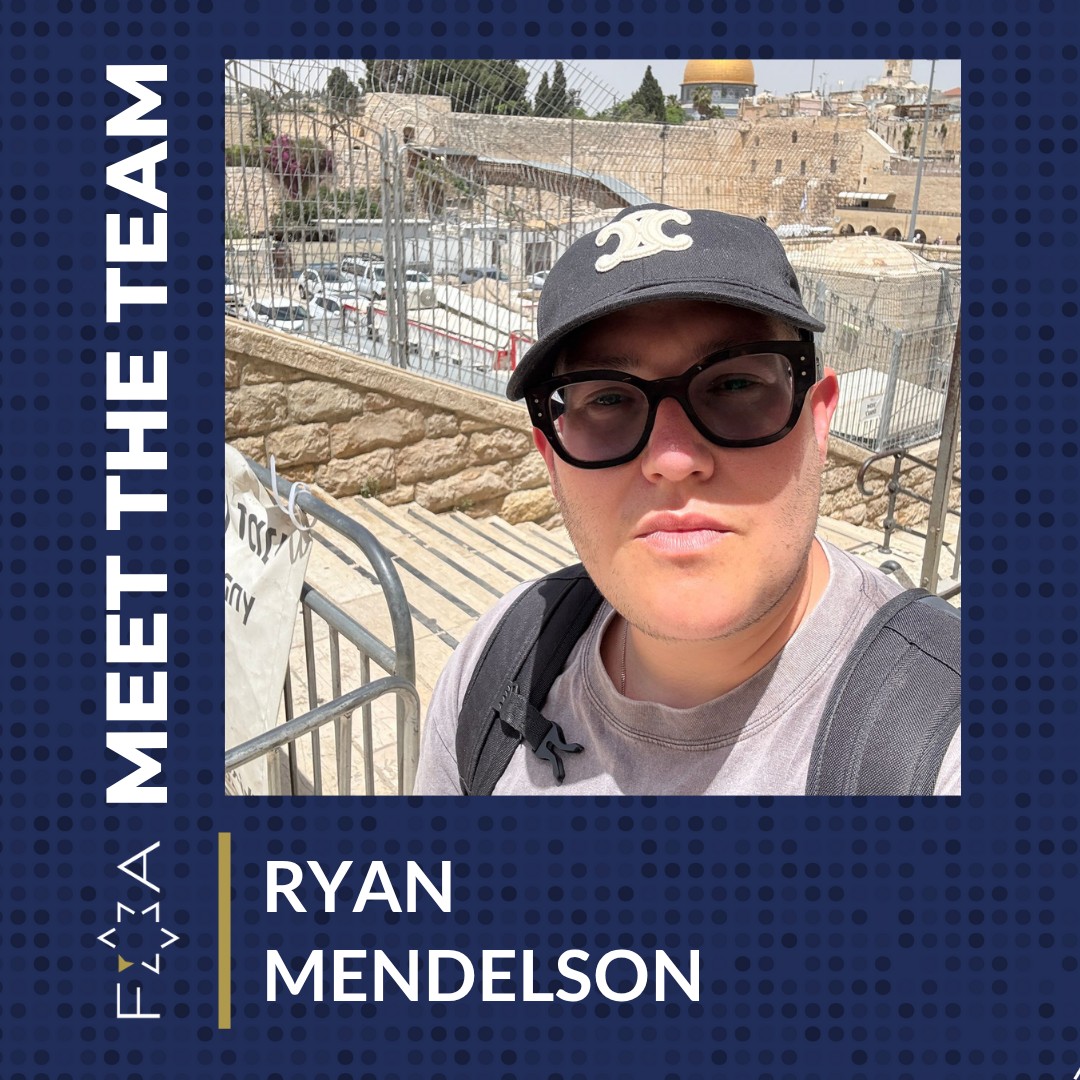Tell us a bit about yourself — what led you to where you are today?
I’m Ryan, 33, originally from the U.S. and now living in the UK. I’m a proud Jewish Zionist. My journey here has been shaped by experiences that helped me understand identity, resilience, and purpose. Growing up, I saw firsthand how prejudice and misinformation can distort reality and spread hate. That made it clear to me that staying silent wasn’t an option. Over time, I’ve come to believe deeply in using my voice to stand up for truth, support the Jewish people and Israel, and push back against all forms of hate. Every step along the way has only strengthened that commitment.
How did you first hear about FOA, and what made you want to get involved?
I was receiving a lot of antisemitic abuse online and talking with a friend about where I could report it. They suggested contacting CST, but then I came across Fighting Online Antisemitism’s website and noticed you were looking for volunteers. So I reached out to your team — and here I am.
What does your typical day as a monitoring volunteer look like?
Each shift starts with checking updates — new trends, coded language, alerts — before logging into our monitoring tools. From there, I search social media and other online platforms using specific keywords and symbols to spot antisemitic content. That could be anything from Holocaust denial to hate speech or extremist propaganda. I assess each case for context and severity, document it, and flag serious incidents to Helle, our team lead. It’s a role that takes focus, teamwork, and a thick skin.
What keeps you motivated to do this kind of work?
I believe strongly in standing up against hate and making the internet a safer space for everyone. Antisemitism spreads fear and misinformation — and reporting it is a way I can push back. For me, it’s personal. No one should be targeted for who they are, and this work aligns with my values of equality and respect. Knowing I’m helping hold platforms accountable and support affected communities keeps me going.
What unique perspective do you bring to the fight against antisemitism and anti-Zionist hate?
My perspective is shaped by empathy, critical thinking, and a strong belief in fairness. I know how easily misinformation spreads online, so I try to approach each case with both sensitivity and objectivity. It’s important to distinguish between political criticism and real hate speech — and that means understanding context, intent, and the real-world impact of what’s being said.
Before joining FOA, how familiar were you with how antisemitism spreads online?
I already had a good grasp of how it operates — through social media, online forums, and even casual conversations. I recognized the patterns, the coded language, and how hateful ideas can spread and normalize quickly. That awareness is what pushed me to take a more active role in countering it.
Since joining FOA, what’s surprised you the most?
I knew antisemitism existed, but I wasn’t prepared for how constant and aggressive it is online. It’s one thing to deal with hate in person — it’s another to see the sheer volume of it across digital platforms. It’s overwhelming, but it also fuels my drive to keep pushing back.
What’s the hardest part of this work and how do you deal with it?
Honestly, it’s resisting the urge to argue with the trolls. When you see blatant lies and hate, it’s tempting to jump in. But I’ve learned that responding just feeds the fire. The smarter move is staying focused on reporting and documenting — it’s more effective in the long run.
What do you hope changes in the online space over the next few years?
I want to see more accountability. Platforms need to act faster and more consistently to take down antisemitic content before it causes harm. I also think education is key — helping people recognize antisemitic tropes and misinformation so they don’t unknowingly spread them. Ultimately, I hope the internet becomes a space where people can express themselves without fear of being attacked.
What would you say to others about why this work matters, and how they can get involved?
Fighting antisemitism online isn’t just a Jewish issue — it’s a human one. Hate speech affects everyone and undermines the values of any decent society. You don’t need to be an expert to help. Just being aware, reporting harmful content, and supporting those targeted by hate makes a difference. Everyone has a role to play. Together, we can create a digital space that’s more truthful, empathetic, and united.

